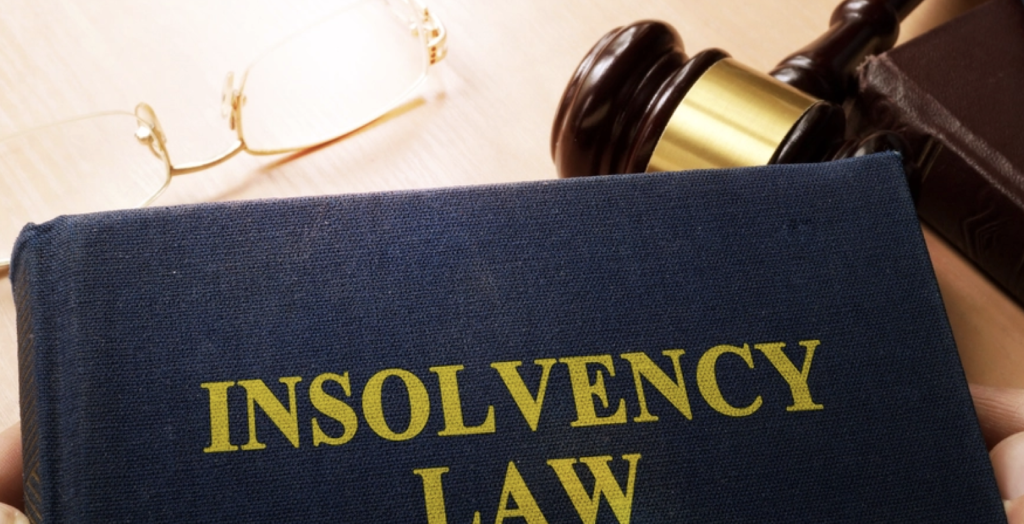The Ultimate Guide To Insolvency Practitioner
Table of ContentsSome Known Facts About Insolvency Practitioner.Not known Facts About Insolvency PractitionerThe 5-Minute Rule for Insolvency PractitionerLittle Known Facts About Insolvency Practitioner.Things about Insolvency PractitionerMore About Insolvency Practitioner7 Easy Facts About Insolvency Practitioner Explained
Insolvency is when obligations are greater than the value of the business, or when a debtor can not pay the financial obligations they owe. A company can come to be financially troubled because of a variety of circumstances that cause bad cash money circulation. When confronted with bankruptcy, a company or person can speak to creditors straight and restructure financial obligations to pay them off.Organization owners may call creditors straight and restructure financial debts right into more manageable installments. Creditors are generally open to this approach since they want to be paid off and prevent losses, also if the settlement is on a postponed routine.
Insolvency Practitioner Things To Know Before You Buy
The owner develops a proposal outlining exactly how the debt may be restructured utilizing expense decreases or various other prepare for support. The proposal shows lenders how business may produce adequate capital for lucrative operations while paying its financial obligations. Commonly, a forgiven financial obligation might be taken into consideration earnings by the Internal Earnings Solution (IRS).

The Ultimate Guide To Insolvency Practitioner
The organization might end up paying large amounts of cash in damages and be unable to continue operations. When procedures discontinue, so does the company's revenue. Lack of revenue results in unpaid costs and lenders requesting cash owed to them. Some firms end up being financially troubled because their items or solutions do not advance to fit consumers' transforming demands.
Costs surpass revenues and costs continue to be unsettled. Kinds of bankruptcy consist of cash-flow bankruptcy and balance-sheet bankruptcy. Cash-flow bankruptcy happens when a company has the properties to cover their debts yet they are in the wrong type, such as realty as opposed to liquid funds. Balance-sheet insolvency, on the various other hand, indicates an absence of possessions in any kind to cover financial obligations.
The IRS states that an individual is financially troubled when the overall responsibilities go beyond overall assets. A bankruptcy, on the various other hand, is an actual court order that shows just how an insolvent person or organization will settle their lenders, or just how they will offer their possessions in order to make the payments.
An Unbiased View of Insolvency Practitioner

Debt debt consolidation is when you integrate multiple finances right into one brand-new loan, often to attain better terms. Insolvency is not the very same as insolvency, although a business that has come to be financially troubled may apply for bankruptcy. Bankruptcy is the state of not having the ability to pay your responsibilities while bankruptcy is a legal process to release your debts.
Comprehending the elements that can lead to insolvency, such as overspending, can help you avoid bankruptcy and its repercussions.
Insolvency Practitioner - The Facts
It is well known that directors and police officers of corporations (and managers of read this article minimal obligation companies) owe fiduciary duties to their organizations and their shareholders (or members). These fiduciary obligations are specified by state laws and, though there are variants from one state to another, they normally include a task of commitment and a responsibility of treatment.
The obligation of care requires supervisors and policemans to work out diligence, to make informed choices, and to act in great confidence to ensure that their activities are in the most effective passion of the company. Past the scope of this conversation, some states enable these obligations to be restricted either by so noting in the business documents or complying with other requirements.
Top Guidelines Of Insolvency Practitioner
The majority of states address specify bankruptcy in two methods( 1) when a firm's responsibilities come to be higher than the amount of its assets or (2) when the firm becomes incapable to pay its debts as they come to be dueand accept both meanings (Insolvency Practitioner). The change in duties happens due to the fact that when a business is bankrupt, there is no worth in the business past that owed to the firm's financial institutions so that the equity owners no more have a financial stake in the firm
Beware regarding offering shareholders favoritism at the cost of lenders (e.g., licensing and funding a returns or a stock redemption). Be mindful about favoritism in between courses of shareholders. Clear up efforts to learn all the facts prior to taking a check this site out particular training course of activity; directors must truly think that any kind of choices made remain in the very best interests of the corporation in its totality (i.e., decisions will be examined in knowledge in light of the effect of such activities on the corporation).
In any type of personal bankruptcy or bankruptcy proceeding, settlements made to certain creditors at the expense of other lenders can be clawed back, particularly if there is some connection between the firm and the creditor. Consider recommending at an annual stockholder conference (or any other conference of shareholders) a resolution verifying that all previous business decisions and activities taken by the supervisors and officers of the company were taken in good confidence after an exercise of reasonable treatment.
The Best Strategy To Use For Insolvency Practitioner
Completely divulge any type of personal or company connections with celebrations beyond of purchases entailing the corporation to prevent the appearance of a dispute of passion. In evaluating prospective fund increasing deals or a sale of properties of the troubled company, be mindful that these purchases may be inspected later taking into account any kind of succeeding growth of supervisors' fiduciary obligations to consist of creditors.